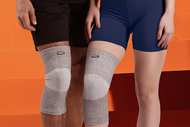Discover the truth about recovery with our guide debunking five popular recovery tips while revealing strategies that truly aid healing.
Discover the truth about recovery with our guide debunking five popular recovery tips while revealing strategies that truly aid healing.
In the pursuit of fitness and wellness, understanding the recovery process is as important as knowing how to exercise. Recovery tips are often shared as a means to help individuals bounce back faster, manage discomfort or pain, and ensure ongoing progress in their fitness journey.
However, not all of these recovery tips are effective. Some, in fact, may not only be unproductive but could hinder your progress or be detrimental to your overall health.
In this article, we aim to debunk five popular recovery tips that, contrary to popular belief, are a waste of your time. Let's explore these myths and provide evidence-based counterarguments to guide you toward a more efficient and healthier recovery.
Recovery is a cornerstone of any effective workout routine. It's the time when your body heals, adapts, and grows stronger. Consequently, following the right recovery strategies is paramount to ensure all your hard work doesn't go to waste and to prevent potential injuries.
To help you do that, we’ll delve into five commonly recommended recovery tips that are, sadly, a waste of your time.
For years, extended bed rest has been a staple prescription for recovery, particularly following injuries or bouts of intense physical activity. The simple logic behind such advice is that rest allows your body to heal.
However, when "rest" is interpreted as prolonged periods of inactivity or immobilization, it can actually do more harm than good. Contrary to popular belief, extended bed rest can lead to a series of detrimental effects on our bodies, such as muscle atrophy, decreased joint flexibility, and even mood disorders like depression or anxiety due to lack of movement.
On the flip side, regular, controlled movement promotes circulation, which is essential for healing and maintaining flexibility. This doesn't mean you need to jump back into vigorous exercise, but rather incorporate gentle movements such as walking or stretching exercises into your recovery routine.
Remember, a balanced recovery is a combination of adequate rest and low-intensity physical activities.
In the face of discomfort or sore muscles following intense exercise or injury, it's easy to lean heavily on medication for relief. Medication can indeed play a crucial role in managing symptoms like pain and inflammation, but it should never be seen as the singular solution for recovery.
Relying solely on medication can lead to overuse, potential side effects, and even dependency. More importantly, it doesn't address the root cause of the problem or promote genuine healing in your body. Instead of viewing medication as the main strategy, consider it as a part of the bigger picture.
Balanced nutrition, physical therapy, and holistic approaches like mindfulness and stress management should work hand-in-hand with medicinal therapy for a comprehensive recovery process.
Hydration plays a critical role in maintaining our health, especially during the recovery phase. Often, advice such as "drink lots of water" or "stay super hydrated" is handed out without any clear limit. The problem arises when this advice is taken to the extreme, leading to overhydration.
Drinking excessive amounts of water, believing it accelerates recovery, isn’t only baseless but potentially dangerous. Overhydration can lead to hyponatremia, a serious condition caused by abnormally low sodium levels in the blood.
The key is to maintain balance. Listen to your body's signals and hydrate according to your personal needs, considering factors such as your body weight, the intensity of your training, and the climate you live in.
One of the most common misconceptions about recovery is the belief that it's solely a physical process. Mental health, however, is a crucial factor in our overall well-being, and ignoring it during recovery can delay or even derail the entire process.
Stress, lack of sleep, and negative emotions can slow down physical recovery, decrease your immune response, and make you more susceptible to injuries or illnesses. Including mental health care in the recovery process is, therefore, vital.
Practices like mindfulness, ensuring quality sleep, and stress management techniques can significantly enhance your recovery experience, making it more holistic and effective.
There is a widespread belief that skipping post-workout nutrition aids in weight loss and recovery. While it might seem logical to skip a meal to create a calorie deficit, doing so after a workout can actually be counterproductive.
After exercising, your body is in a state where it requires nutrients—specifically proteins and carbohydrates—to repair muscle tissue and replenish glycogen stores. Neglecting this important recovery period can not only impede your muscle groups’ recovery but also lead to muscle loss and persistent low energy levels.
Research suggests that consuming a balanced meal or snack, preferably containing proteins, within 45 minutes to an hour after a tough workout can significantly optimize recovery. This practice facilitates muscle repair, replenishes energy stores, and can even boost your future performance.
After busting common yet ineffective recovery myths, it's time to focus on the strategies that help facilitate effective recovery. These tips, grounded in scientific research, emphasize a holistic approach to recovery, recognizing the inseparable connection between our physical and mental health.
Active recovery is a technique that involves performing light physical activities on your rest days. Instead of rigorous workouts, think of activities like a slow jog, gentle yoga, a leisurely bike ride, or even a relaxing swim.
These low-intensity movements facilitate blood flow to the muscles, promoting healing and recovery. They also help reduce muscle stiffness and maintain mobility, making you feel refreshed and keeping your body in a healthier state for your next workout. Active recovery combines the advantages of rest and subtle movement, offering an effective recovery approach.
Proper, balanced nutrition is paramount for recovery. Consuming a diet rich in lean proteins, complex carbohydrates, fruits, and vegetables equips your body with the essential nutrients it needs to repair damaged tissues, build muscle, manage inflammation, and restore depleted energy stores.
Post-workout meals or snacks are particularly important as they provide fuel for the recovery process, helping to replenish glycogen stores and initiate muscle repair. By giving your body what it needs nutritionally, you can enhance recovery and be ready for your next training session.
Sleep isn't just a good recovery tool; it's the best one your body has at its disposal. During sleep, your body undergoes numerous repair and recovery processes, such as the production of growth hormones necessary for muscle repair and recovery.
Having a regular sleep schedule and aiming for 7-9 hours of quality sleep every night can significantly enhance your body's recovery processes, improve performance, and reduce muscle soreness.
Recovery isn't just about the body; it's about the mind, too. Mental well-being plays a crucial role in the recovery process. Practices like mindfulness meditation, deep breathing exercises, and yoga can help reduce stress and anxiety, which can otherwise hamper your recovery.
Moreover, engaging in hobbies that you love and spending time with loved ones can improve your mood and contribute to your overall well-being. Look after your mental health as rigorously as you do your physical health to ensure comprehensive recovery.
Hydration plays a significant role in muscle recovery. Drinking ample fluids aids in the transportation of nutrients to your cells, supporting muscle repair, and helps flush out metabolic waste from your body, promoting overall health. Rather than just chugging water around your workout times, aim for consistent hydration throughout the day to aid your recovery more effectively.
Doing regular mobility work, such as stretching and mobility drills, can help your muscles recover by improving joint flexibility, promoting circulation, and reducing muscle tension. Not only does this aid in recovery, but it can also improve your performance and reduce the risk of injuries in the future.
Massage and foam rolling, or self-myofascial release, can be highly beneficial for recovery, especially after endurance exercise.
These techniques help to reduce muscle tightness, increase blood flow to the muscles, and may also help decrease delayed onset muscle soreness. They're an easy and efficient way to aid recovery and can be performed at home using a foam roller or massage tools.
Recovery wear has become a popular tool amongst athletes and fitness enthusiasts for its potential role in enhancing recovery. This type of clothing, which includes specialized garments like compression sleeves, socks, shirts, and tights, is designed to aid the body's natural healing process.
Scientific research has shown that recovery wear can improve circulation, reduce muscle swelling, and decrease perceived muscle soreness. The enhanced circulation facilitates the removal of metabolic waste and the delivery of oxygen-rich blood to your muscles, both of which are crucial for effective recovery.
Additionally, the reduced muscle swelling can help manage discomfort during workout recovery. A particularly effective example of recovery wear is the Thermo Recovery Wear line, designed with cutting-edge technology. This range includes ankle, knee, elbow, and dual shoulder sleeves, all embedded with semiconductors to promote recovery and make it significantly more comfortable.
As always, it's essential to remember that each person’s body responds differently to different recovery strategies. These tips are general guidelines but should be tailored to your individual needs and circumstances.
Effective recovery has several important benefits:
With the right recovery strategies, you can make the most out of your workouts, improve your performance, and maintain your health. Whether you're an elite athlete or an occasional gym-goer, effective recovery is a crucial part of your fitness journey.
As we've discussed, not all recovery strategies are created equal. Some commonly recommended tips, such as extended bed rest or relying solely on medication, can do more harm than good.
Instead, it's essential to focus on effective, scientifically-backed methods for recovery. Incorporating techniques such as active recovery, balanced nutrition, quality sleep, and consistent hydration can help optimize your body's natural healing processes.
Mental health care, regular mobility work, massage and foam rolling, and the use of recovery wear, like Thermo Recovery Wear, can further aid in recovery.
By prioritizing effective recovery strategies, you won’t only enhance your performance but also promote your overall health and well-being. Here's to a healthier, more effective recovery journey!

Incrediwear is on...
September 25, 24

Pain management i...
September 23, 24

Recovery wear is ...
September 12, 24